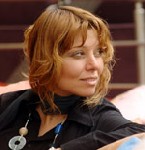 Project Syndicate
Project Syndicate - On July 23 millions of Turks will wake up into a new, post-elections Turkey. What will happen is hard to foresee. Turkish politics is full of surprises that only foreigners find surprising. Today, and this seems to surprise most people outside Turkey, it is women, not men, who are at the heart of political debate. Indeed, in these elections the number of women candidates from all parties has visibly increased and so has female political overall activism.
This election is taking place because when the AKP party, the conservative party now in power, designated Foreign Minister Abdullah Gul as its candidate for president, the country’s secular elite cringed. Gul was not the issue; the issue was his wife. Had Gul been chosen as president, Turkey would have had its first headscarf wearing First Lady.
Gul’s wife’s headscarf was interpreted as the symbol of darker changes to come. If the First Lady wears a headscarf, maintained the secular-minded elite, the whole secular system could be undermined.
What followed was unprecedented political turbulence, including mass demonstrations on a scale never seen before. There was feverish talk of a possible military takeover, and the army again proved itself to be a seminal political actor.
Through all this, Turkish women were at the forefront. In particular, Turkey’s Westernized, modernized, secular women seemed determined to show their opposition to the existence of “the other” Turkish woman.
Gender issues have always been vital in the Turkish nation-state. Kemalism (the beliefs associated with the founder of modern Turkey, Musfafa Kemal Atutűrk) is unique among all Muslim reform movements in that it transformed not only the public sphere, but also the private sphere – the domain of mothers, wives, sisters, daughters. In the 1920’s and 1930’s – the years of Atutűrk’s rule -- the “new Turkish women” became the icon of the modern, secular regime.
The difference between what the French call laicité and secularism is more than a linguistic nuance for Turkey, which adopted its Kemalist system not long after France entrenched its secular republic. Religious symbols and references have to a large extent been removed from the public sphere here, and religion is thought to be a private matter. Many Turks who go to the US for the first time are puzzled, indeed, by its religiosity. It comes as a surprise to see religious symbols and statements at the entrance of public buildings, on money, inside the courtroom.
But in Turkey the headscarf is not seen as a trivial symbol. Eighty years after the republic’s founding the trouble with headscarved women is that they do not fit into the picture of the ideal modern Turkish woman.
At the first glance there seems to be a huge mental, cultural and political gap dividing Turkey’s women. Yet if we look closer this gap becomes illusory. In everyday life the two types of Turkish women are more mixed than they are usually assumed to be. It is not uncommon for one sister to wear a headscarf while another does not, or a mother to wear a headscarf while her daughters do not.
Sometimes among two best friends, one is covered and one is not. Any stroll along a crowded Istanbul street will show covered and uncovered women effortlessly -- almost naturally -- mixing. Why then can’t a similar sisterhood be achieved in the realm of politics?
A recent opinion poll shows that around 60% of women in Turkey cover their heads outside their homes. But does this mean 60% wear the veil? Does it mean that they all support Islamic fundamentalism? The answer to both questions is negative.
As a novelist, when writing in Turkish I can encounter more than eight different words to stand for the headscarf. Yemeni, türban, eşarp, çarşaf,… Each is different. Different women wear the headscarf for different reasons. Some wear it out of habit or for traditional reasons rather than religious ones. For others the motivation is political. Not all women wear a headscarf because of religious conservatism. And not all headscarved women are “ignorant” or “repressed.”
But this complexity is lost due to the concept of “the veil.” If one makes no distinctions and disregards nuances one will end up believing that 60% Turkish women wear the veil. The same poll, however, revealed that the percent of women who cover their heads fully and for more political than traditional reasons is no more than 11%. Paying attention to nuances makes a huge difference– the difference between saying that 60% women wear the veil and saying that 11% do.
This complexity is lost not only on Western observers but also on Turkey’s elite. Because ideological clashes here seem to center around women’s bodies and clothes perhaps it is time we stopped asking “how should an ideal Turkish woman look?” and start asking “should there be an ideal woman Turkish woman at all?” After all, pluralism is not only a political principle, it is one a free society applies to individuals – male and female – as well.
We in Turkey have been tackling the question of whether Islam can coexist with Western democracy for more than 150 years. After150 years of Westernization and modernization, the answer we have come up with is a definite “yes.” Turkey is a complicated country, with multiple dilemmas. Its women both heal and intensify its tensions.
Elif Shafak, one of Turkey’s bestselling writers, is the author of The Bastard of Istanbul and The Saint of Incipient Insanities.
Copyright: Project Syndicate, 2007.
www.project-syndicate.org
